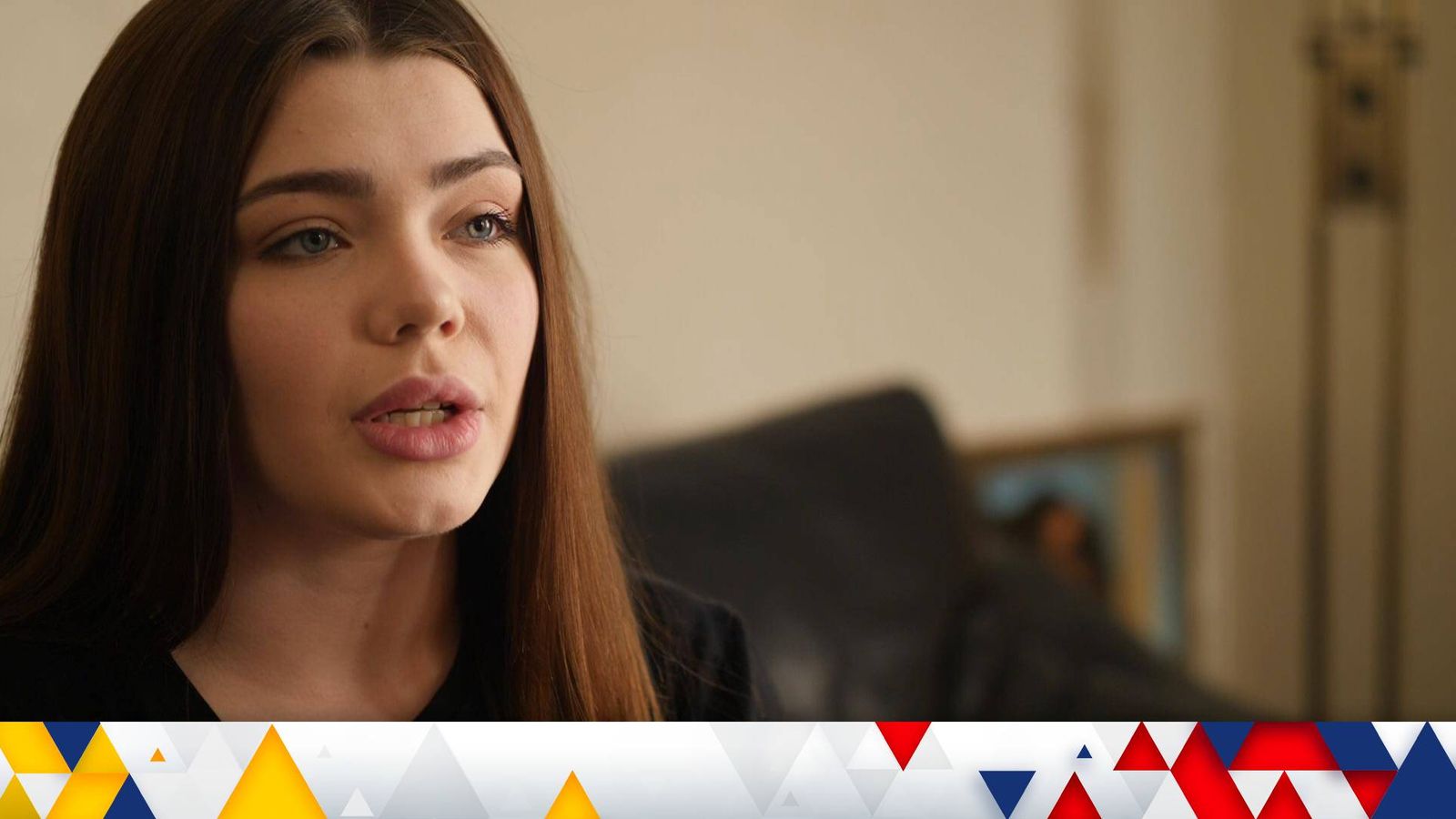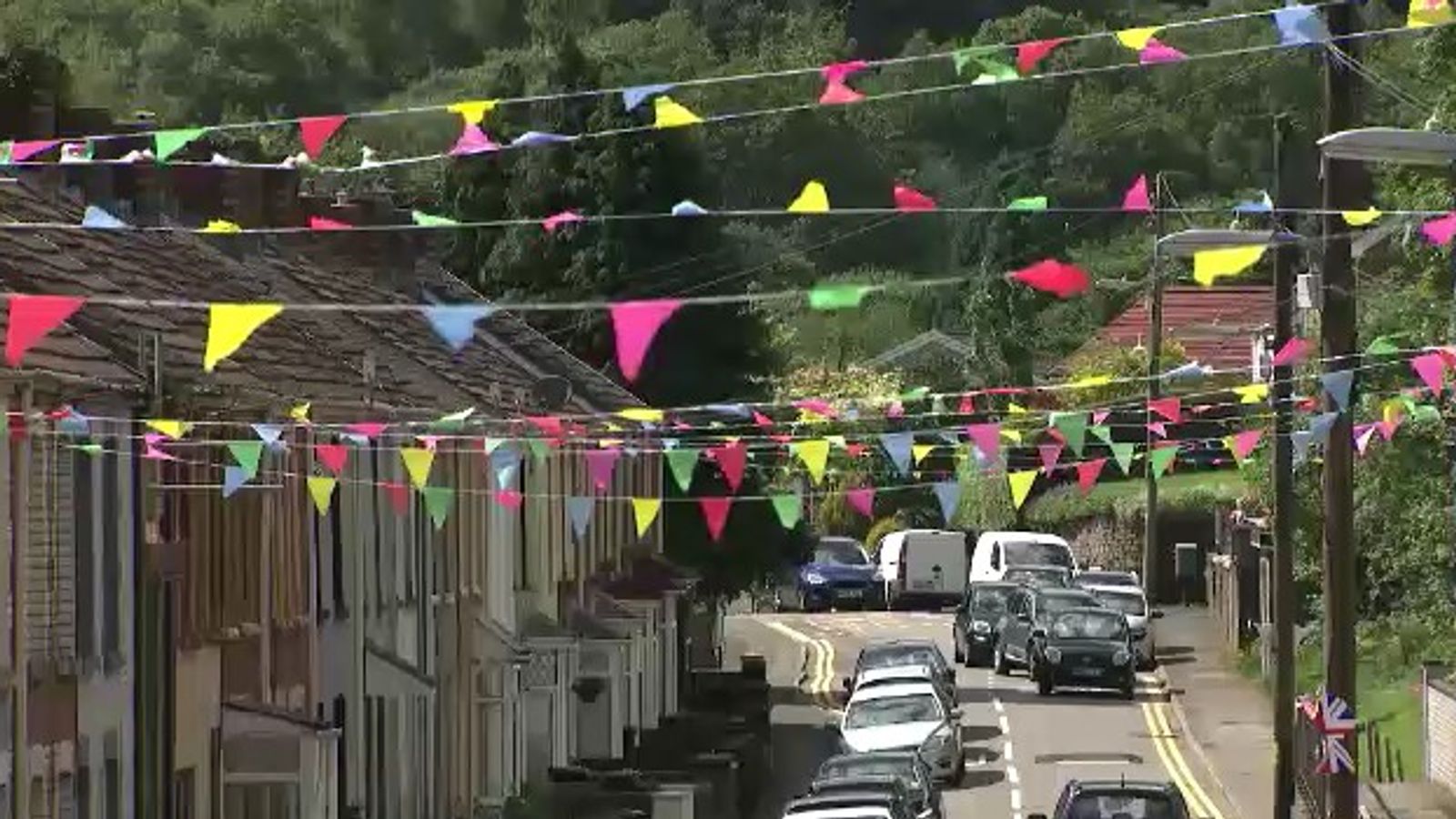Ukrainian refugees arriving in the UK could face a “life or death” situation due to a lack of mental health support available, according to campaigners.
Anastassia Koval fled the Ukrainian city of Kharkiv with her mother and younger sister three months ago, her father stayed behind to fight.
It was a journey that took days, a journey filled with anguish, a journey that felt endless.
Ms Koval recalled the moment her family were caught in shelling while trying to flee.
She told Sky News: “This alarm started and we saw some shells that were flying above us.”
She remembers telling her mother “we don’t have time to hide”.
“If we should die right now, let’s die.”
Ukraine war: Children with toy guns manning checkpoints, while body hunters search for dead Russian soldiers
Ukraine war: Volunteer tries to source tools and weapons for country’s soldiers
Ukraine says Russia attempting to move war to ‘protracted phase’ – after ‘achieving none of its strategic objectives’
They managed to escape unharmed, but it is a series of incidents that have left Ms Koval with trauma.
While fleeing, Ms Koval remained concerned about her father, she says there is one phone call she will not forget.
‘I’ve lost friends and I’ve lost my life’
She said: “I picked up the phone and he was like, ‘I’m alive. I’m alive!’
“After maybe three minutes of yelling he’s alive he told me that the bomb planted in his military base where he was and his soldiers also. The bomb landed and ceiling fell down on my dad.
“I was scared but because of war I lost my feelings and I feel nothing.”
Ms Koval is now living with a host family in the UK while the rest of her family stays with relatives in Bulgaria.
She added: “I have trauma, for example not feeling something is not good, it’s extremely bad. I have trauma definitely, because of my dad I’m constantly worried about him and I’ve lost some friends, and I’ve lost my life.”
Stories like Ms Koval’s are heard constantly by Ukraine refugees being supported by Healed Scars Trauma and Abuse Recovery.
Chief executive Ewelina Chin told Sky News: “Trauma is a big thing and cannot be overlooked, often many women coming here feel happy and feel alright and then suddenly after a few weeks they feel bad want to go back and can’t cope here, and this is typical of trauma.”
In Cambridge, Rend Platings is working with Mums4Ukraine to provide support to those arriving in her local area.
She fears that if more mental health support is not put into place, the consequences could be devastating.
She told Sky News: “If we don’t have more support I think it’s a life or death situation for many Ukrainians for two reasons.
“Firstly, because they may want to go back to Ukraine and risk their lives doing that, they’ll be deeply missing, family, friends and other people that they have over there and trying to get support that they need over there.
“And second because they may actually end up unfortunately with not getting the support getting here taking their own lives.”
Subscribe to Ukraine War Diaries on Apple Podcasts, Google Podcasts, Spotify and Spreaker
Ms Platings added: “What the government needs to do is to provide war and trauma specialists to meet with adults and children once a week and give them a session so they’re able to adjust to their situation over here.
“We should take advantage of the fact that there are so many qualified Ukrainians coming to the UK.
“Some of them are psychologists, some of them are qualified psychiatrists. If we could possibly fast-track their qualification and accreditation into UK psychological and psychiatric services, that could be a huge step and a huge benefit and clear up a long backlog.”
Read more:
100 days of war in Ukraine: The devastating consequences of Putin’s invasion
Inside the village where torture and destruction by Russian soldiers leaves families broken
A Department for Levelling Up, Housing and Communities (DLUHC) spokesperson said: “In as little as two months we have issued more than 120,000 visas, helping Ukrainians displaced from their home country to come to the UK to live, work, study and find stability here.
“Local councils will be central in helping families settle into their communities and access public services, including schools, public health and other support, including access to trauma counselling.
“Where necessary, councils should provide advice and referrals to specialist public health services as appropriate.”










